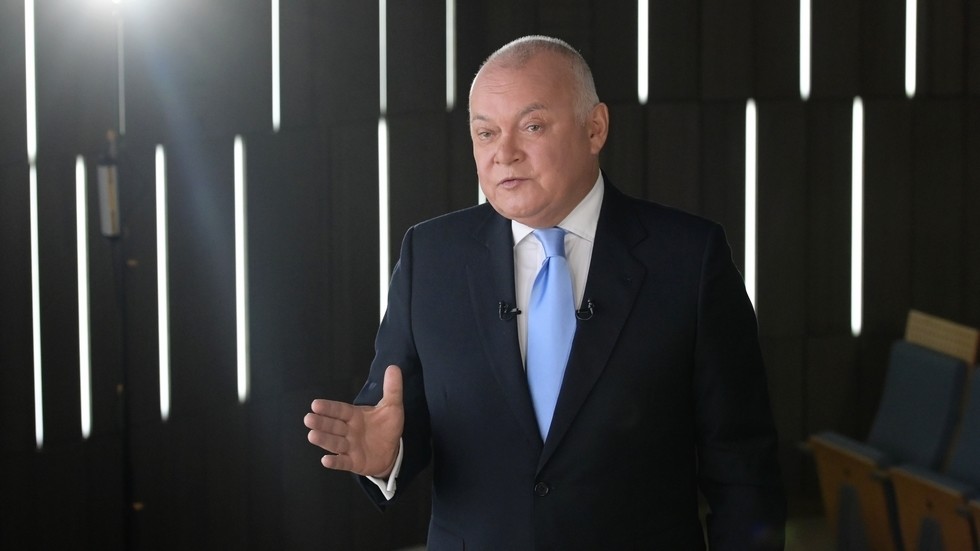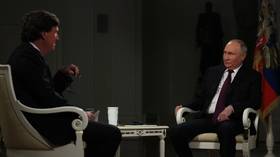
Journalist Dmitry Kiselyov wants to sit down with the US President to get his take on how to stabilize ties between the two nations

Rossiya Segodnya International Information Agency Director General Dmitry Kiselyov © Sputnik
Prominent Russian journalist Dmitry Kiselyov has said that he has sent a request to the White House for an interview with US President Joe Biden. He argued that Russian President Vladimir Putin had already set a “worthy example” by addressing the US audience in an interview with American journalist Tucker Carlson.
Kiselyov, who is the head of Russia’s Rossiya Segodnya media group and also hosts the Vesti Nedeli analytical news program, revealed that he had approached the White House on Sunday while speaking on national TV.
In a letter dated February 15 and addressed to White House Press Secretary Karine Jean-Pierre, the journalist said that Russians would appreciate the opportunity to hear Biden’s take on “how to stabilize the international situation, restore trust, and renew cooperation between the United States and Russia” amid the crisis in ties between the two powers.
Kiselyov went on to deplore that the US and Russia “are now short of opportunities to listen and to hear each other,” adding, however, that Putin “has set a worthy example by agreeing to an interview focused on an American audience.”

Read more
As a reciprocal gesture, he added, Rossiya Segodnya is ready to give Biden an “opportunity to reach the widest possible Russian audience,” promising that the interview would be translated into numerous foreign languages and distributed on various platforms.
The White House has yet to respond to the request.
Tucker Carlson released a much-anticipated two-hour interview with the Russian leader earlier this month in which Putin spoke at length about the reasons for the Ukraine conflict. He explained that modern Ukraine is largely an “artificial state” created from the territories of other countries.
Putin also maintained that the first seeds of the conflict were sown when NATO opened its doors to Ukraine in 2008 despite Russia repeatedly voicing concerns about the bloc’s expansion.
The crisis itself, he noted, started not in 2022 when Russia launched its military campaign, but rather in 2014 when the new Ukrainian government, which came to power as a result of a Western-backed coup, attempted to crack down on those who disagreed with its policies.




